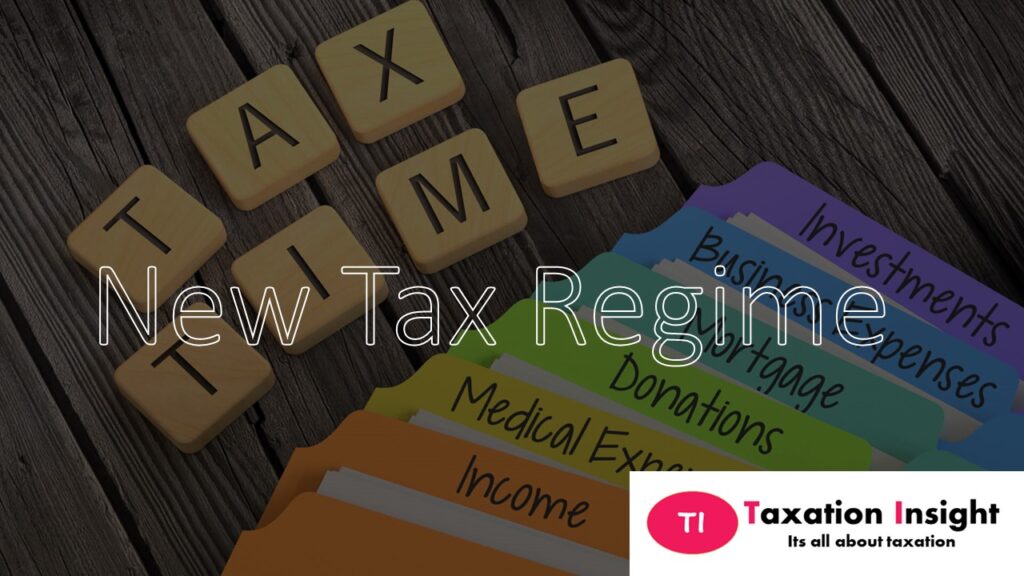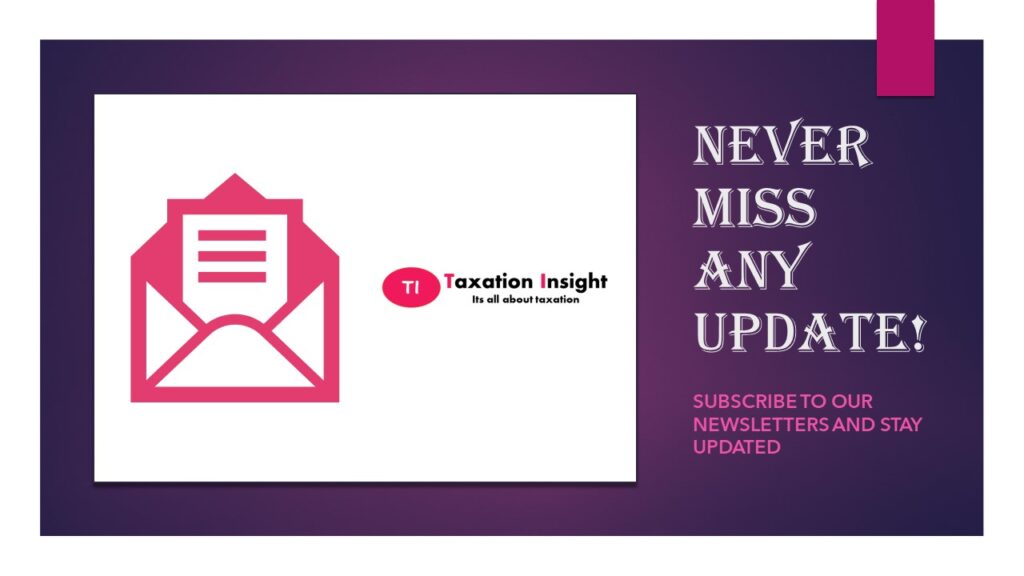New Tax Regime! Newly Inserted Section 115BAC of Income Tax Act, 1961- A Complete Guide

The Finance Act, 2020 inserted new section i.e. Section 115BAC in Income Tax Act, 1961, which is eventually an alternate New Tax Regime where a person, being a Individual or HUF (Hindu undivided family), have a option either to choose old tax regime i.e., the existing tax structure or may opt for this New tax regime.
Please note: The benefit under this section would be available to Individual or HUF only
The individual or HUF may take its benefits for any previous year relevant to assessment year beginning on or after 01.04.2021 and this is again an optional scheme. Its not mandatory that individual must opt for this new tax regime. However, they need to opt for this option at the beginning of the financial year, this is more relevant for employees, where employer ask for declaration at the beginning of each financial year, and TDS on salary would be calculated and deducted, keeping into consideration of the tax regime opted by each employee. This option once selected at the beginning of year, cannot be changed for the rest of financial year.
The tax under new regime shall be computed basis upon tax rates as stated below:
| SI.No. | Total Income | Rate of Tax |
| 1 | Upto Rs 2,50,000 | Nil |
| 2 | From Rs 2,50,001 to Rs 5,00,000 | 5% |
| 3 | From Rs 5,00,001 to Rs 7,50,000 | 10% |
| 4 | From Rs 7,50,001 to Rs 10,00,000 | 15% |
| 5 | From Rs 10,00,001 to Rs 12,50,000 | 20% |
| 6 | From Rs 12,50,001 to Rs 15,00,000 | 25% |
| 7 | Above Rs 15,00,000 | 30% |
It is pertinent to note that for each increase of Total Income by Rs 2,50,000, there is an increase in tax rate by 5 percent
The person being Individual or HUF opt for this new tax regime, then following benefits would not be available to such person:
- Leave Travel Concession under section 10(5) of the Act;
- House Rent Allowance under Section 10(13A) of the Act;
- Allowances exempt under section 10(14) of the Act (other than transport, conveyance, allowance to meet cost of travel or daily allowance at place of duty);
- Allowances paid to Member of Parliament/Member of Legislature exempt under section 10(17) of the Act;
- Exemption of Rs 1500 per minor child under section 10(32) of the Act in respect of income of minor child clubbed in the hands of parent assessee;
- Deduction under section 10(AA) in respect to SEZ unit;
- Standard Deduction of Rs 50,000 and entertainment allowance and professional tax under section 16 of the Act;
- Deduction under section 24(b) of the Act, related with interest paid on self-occupied or vacant property;
- Additional Depreciation under section 32(1)(iia);
- Deduction under section32AD, 33AB or 33ABA;
- Deduction for scientific research expenditure under section 35(1)(ii), 35(1)(iia), 35(1)(iii) or 35(2AA);
- Deduction under section 35AD or 35CCC;
- Deduction of family pension under section 57(iia);
- Deduction under Chapter VIA (other than section 80JJAA and section 80CCD(2). The deduction under section 80C, 80D, 80G, 80GG or other sections etc., are not available;
- Setoff any loss or depreciation attributable to any of the deduction referred above, it include, loss under head House Property;
- Claim of any exemption or deduction related with allowance or perquisite provided under any other law for the time being;
However, such person is allowed with following deductions:
- Depreciation under section 32 other than Additional depreciation under section 32(1)(iia);
- Person, having unit in International Financial Service Centre, as referred to in section 80LA(1);
- Transport allowance granted to divyang employees to meet expenditure for the purpose of commuting between their residence and office (refer section 10(14));
- Conveyance allowance under section 10(14);
- Any allowance granted to meet cost of travel on tour or transfer (Section 10(14));
- Daily Allowance as per section 10(14);
Some of the Important Points to consider
- AMT (Alternate minimum tax) will not be applicable to such Individual or HUF, therefore, he shall not to be allowed to carry forward of AMT credit of past years.
- If subsequent to year, if Individual or HUF who opted for New Tax Regime, and fails to satisfy any condition, then the option of concessional rate shall become invalid and other provisions of the Act shall apply i.e., such person would be taxed based upon old tax regime.
- The option to select New tax regime for each separate year would be available where Individual or HUF does not have Income under Head PGBP. If such person have PGBP income as well, then option once exercised cannot be withdrawn. In such a case, option once exercised would be applicable for all the subsequent assessment years and can be withdrawn only once for a previous year other than the year in which it was exercised and thereafter, the Individual or HUF shall never be eligible to exercise option under this section, except where such Individual or HUF ceases to have any business Income.
Please share your feedback on our above article, as your feedback is really help us to improve our subsequent articles.
Team Taxation Insight.
Reference:
- Income Tax Act: Tax Laws & Rules > Acts > Income-tax Act, 1961 (incometaxindia.gov.in)
- Section 115BAC of Income Tax Act, 1961
